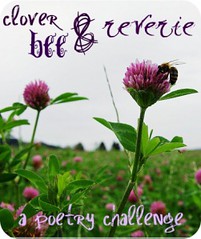Source: the author
ebook, 238 pgs.
I am an Amazon Affiliate
Writing for Bliss: A Seven-Step Plan for Telling Your Story and Transforming Your Life by Diana Raab is so much more than a book about writing and motivation, it’s about looking inside yourself to find what makes you happy and make it your center. Raab uses her plethora of writing experience and combines it with her knowledge of psychology and meditation to help writers create their own seven-step plan for writing not only about their own lives but other artistic projects too. This is not a book about writing and selling your art, but about tapping into natural creativity and emotion to improve the whole body and psyche.
“Setting an intention involves focusing your thoughts in the particular direction of what you want to bring about or manifest in your life. … One thing to remember is that, even before you set an intention, you need to make sure you believe in it, .. ” (pg. 51 ARC)
Setting goals often is the easiest part for writers and others, it is the intention and believing in those goals that will ensure you reach them. Raab has fantastic advice about maintaining balance, how to find happiness and maintain it, and how this all falls in line with a writing life. However, those who are not in a place to commit will find it hard to begin, let alone sustain big changes. Raab’s advice is sound and writers who follow it are bound to reach the goals they set for themselves, especially after they have created a space where writing will be done (inside their own heads and in a physical space).
Meditation is a big part of her process, and while many may find this too “new-age” or “hokey”, it serves as a marker — a reminder to slow down and make time to think and reflect. It does not have to be the standard meditation. It could simply be a walk that clears the mind of clutter or a few moments listening to classic music to relax. It is about stepping away from the busyness of life to move forward with personal goals.
Writing for Bliss: A Seven-Step Plan for Telling Your Story and Transforming Your Life by Diana Raab will help writers and others focus their energy on their own happiness and show them the way toward fulfillment. Writers often suffer from writer’s block, and there are a number of options in this book to help you break through. For those who want to write about the past or the future or their emotional trauma, this guide will surely help them toward healing and toward embracing the truth of their lives. Too often we are busy with other things, but Raab reminds us that to be healthy and happy, we need to be busy with our own bliss.
RATING: Cinquain

Diana Raab, MFA, PhD, is a memoirist, poet, blogger, speaker, thought leader, and award-winning author of nine books and more than 1,000 articles and poems. She holds a PhD in psychology—with a concentration in transpersonal psychology—and her research focus is on the healing and transformative powers of personal writing. Her educational background also encompasses health administration, nursing, and creative writing.
During her 40-year career, Dr. Raab has published thousands of articles and poems and is the editor of two anthologies: Writers and Their Notebooks and Writers on the Edge. Her two memoirs are Regina’s Closet: Finding My Grandmother’s Secret Journal and Healing with Words: A Writer’s Cancer Journey. She has also written four collections of poetry, her latest collection is called, Lust. As an advocate of personal writing, Dr. Raab facilitates workshops in writing for transformation and empowerment, focusing on journaling, poetry, and memoir writing. She believes in the importance of writing to achieve wholeness and interconnectedness, which encourages the ability to unleash the true voice of your inner self. Dr. Raab serves on the board of Poets & Writers (Magazine Committee), and Beyond Baroque Literary Arts Center in Santa Monica, California. She is also a Trustee at the University of California, Santa Barbara.



 Diana M. Raab‘s The Guilt Gene is a collection steeped in nostalgia that fails to glorify the past. The collection is broken down into six sections: “Cherry Blossoms, Book Tour, Two Evils, The Devil Wears a Poem,
Diana M. Raab‘s The Guilt Gene is a collection steeped in nostalgia that fails to glorify the past. The collection is broken down into six sections: “Cherry Blossoms, Book Tour, Two Evils, The Devil Wears a Poem, 





